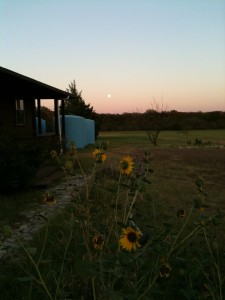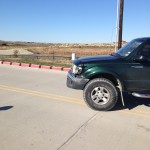getting back on the horse
Overheard in the Wolfe House #303
Peggy: So how was horseback riding today? Were you back on Revenue?
Sam: Yep, back on Revenue.
Peggy: How was he?
Sam: Revenue is back to his usual misdemeanors.
Then let me be brave in the attempt
“Let me win. But if I cannot win, let me be brave in the attempt.” — The Special Olympics Athlete’s Oath
Before the Really Big Weather hit Bryan, we were there for Special Olympics last weekend.
Sam has been competing in equestrian Special O since he was 12 years old. Yet, each year his instructors find new ways to challenge him. He’s become an independent rider, first in English style. This year, he’s riding Western, too. Sam practiced competing in a few “able-bodied” shows earlier this year to help him get ready.
All that preparation is no guarantee for gold. Some riders are more experienced and consistent. Other riders have horses that are competitors, too. For example, the first clip in the video below shows Sam in barrel-racing. This is his first year to compete in this event. He is working on smoothing out his turns and keeping momentum. That got him a silver this year. But the gold medal winner rode a horse that understands The Need For Speed. I’m not sure I could watch Sam on a horse that spirited. I watch and wonder how it tolerates having a rider on its back at all.
I didn’t include the clip from trail. Sam and his horse couldn’t finish the event. There was Big Weather (just not Really Big Weather) when we were there. The horses didn’t like it. And, there were rain delays. Sam had the option to ride trail either English or Western. He chose English. But not because he felt more experienced, but because of the horse. The team saddled up Magic for English and Revenue for Western. In the week leading up to the event, he and Revenue weren’t clicking. He was concerned. Although it’s not the best video to see the difference in his two equitation events, Revenue was the more consistent performer at Special O.
On the way home, Sam remarked, “I don’t know why I was worried about Revenue. He was great this weekend.”
And then he added, “At least I kept the oath. I was brave in the attempt.”
Our prayers to the people of Bryan, the Brazos River Valley and others affected by this spring’s severe weather and flooding.
Sam rides barrels for the first time
Sam says “well, that was fun.”
Riding Western
Sam competed for the first time in Western style horseback riding at the North Central Texas College stock show last weekend in Gainesville. He competes with “able-bodied” riders from time to time to challenge himself. This was great practice for next weekend. The regional equestrian Special Olympics are being hosted by the stables where he rides, Born 2 Be, in Aubrey.
His coaches have been encouraging Sam to ride Western for a while. Sometimes it takes Sam a little bit to warm up to an idea. He put jeans on for the first time in about 20 years when he tried on a new pair of Wranglers at Weldon’s Saddle Shop last week. (Like his great-grandfather, whom he was named for, Sam’s a khakis man.) Kippie helped him look good, although it’s a mystery where those most excellent chaps came from. Sam says they were, like lots of gear, donated to the stables.
Enjoy.
Catching
Sam has a certain smile that really sings.
He’s such a deep thinker that we don’t get to see this smile very much. Like the smile-for-the-camera smile most of us have, his face looks posed in photographs, only more so. But when a happy moment comes — like that moment when sunlight makes it through the clouds and trees all the way down to the ground to light a patch of wildflowers — Sam’s smile just sparkles.
He lit up that way yesterday when I showed him the rain barrel I brought home from a workshop. “We’re bringing the farm,” he said.
Well, almost. This is the barrel.
This was the farm’s.
We are growing vegetables in beds on the other side of the fence. That 50-gallon barrel should go a long way toward keeping things watered.
I’ll be writing about the rainwater catchment class and the barrel for Monday’s paper.
We have settled into the new place here in town pretty well. We enjoy the many and varied offerings that come with city life. We’ve all got bicycles and ride them around town more and more. But it’s not the same as life on the farm.
We made a very intentional choice to look around at what was missing and bring it in. The rain barrels, and living life closer to the rhythm of the seasons is part of that.
When you see blue-eyed grass covering our front lawn in the spring, you’ll know we finally got it as close as we could.
Chisholm Challenge 2016: English Equitation
Sam said he knew when he went into the ring, he was up against some stiff competition this year. He still had a great ride.
Chisholm Challenge 2016: Showmanship
Sam says the last pivot in front of the judge didn’t go well. The horse, Rosalie, had “her own ideas.”
Guest blog: Sam on tackling trail gates
Today, Sam finished Chisholm Challenge, a horse show hosted for the past 13 years by the Fort Worth Stock Show and area stables that serve riders who are veterans or have disabilities.
Sam didn’t want to talk much about how the trail ride went. (Hint: Not every kernel popped, either today or yesterday.) He did have thoughts about tackling the gate at the end of the trail ride. (Another hint: the gate isn’t a real gate, it’s a rope representing a gate.)
Sam had to both open and close the gate while remaining on his horse, Rosalie. (Yet another hint: This is so difficult that riders at lower levels may be required only to “open” the gate.) Many times, a rider drops the rope before completing the task.
The rules allow them to pick up the rope and try again, at least a few more times. But many riders, once they have dropped rope, simply give up and end the ride.
Sam says he has been thinking about the gate for many years. Here is his advice to riders who are thinking about giving up:
Independent riders should consider a few more attempts to close the gate if dropped. All they need to do is walk the horse up to the side of the gate where the rope still hangs down, haul up the rope without taking it off the gate, then bring the horse to the other side with the rope in hand and finally … CLOSE THE GATE!
As you can see from Sam’s ride today, a little planning, determination and positive thinking goes a long way:
I Really Want to Like The Kitchen
Trouble started the day we realized my best baking sheet wouldn’t fit into the oven.
An old shop on the Denton Square, Country Kitchen City Cooks, carried the Doughmakers brand. I don’t remember which baking pan I bought first, but it impressed me. I collected a pizza pan, a sheet cake pan, round cake pans, a muffin tin and the extra-large cookie sheet.
Do your cakes come out uneven, or do some of your cookies get too dark while others on the pan barely brown? I used to blame the ingredients, or the mixing or my oven. Then I learned most of the blame belonged to the pans. Doughmakers are to baking what cast iron is to the stove-top.
That big sheet pan was so versatile. I could make the cake for a jelly roll or bakery-sized recipes for pecan bars or brownies when the kids were little and had hollow legs. These days, it’s been Sam’s go-to pan for kolaches. We still make bakery quantities of sausage-filled kolaches.
I tried to tell myself I was going to love the kitchen in the new house. It has a cook top! A double oven! A standing freezer! A wet bar!
The galley design would be more efficient, I told myself. Fewer steps around the workspace. Don’t worry that you don’t have a second pantry. You’re not that hot of a cook, I reminded myself. Don’t worry that the dining room furniture now hides a mountain of seasonal kitchen gear. No one will know that you filled the big hutch with cookie cutters and the little hutch with processing equipment. Use the breakfast table when you need more workspace, I coached myself.
The afternoon Sam couldn’t get a batch of kolaches in the oven because it was too small for the cookie sheet, I had to admit it.
I had my dream kitchen. And I sold it.
Mark and I studied a lot of house plans before choosing the house we built nearly 20 years ago. Dog trot to help keep the house cool, big farm kitchen, wrap-around porch for Sam to pace when he was little, and an interior bathroom.
(People who live in tornado alley understand that last requirement.)
After I sold it, I made sure I could still check some of those boxes at the new house: interior bathroom, apartment for Sam (who paces a little differently now), a covered front porch, big trees on the west side of the house to help stay cool (I have yet to run the air conditioning this year.)
I’ve even figured out how to make up for the loss of a farmhouse garden, but it will take a few years of (enjoyable) work to terrace the back of the property and amend the soil.
But the kitchen. It’s a net loss. Even my son, Michael, notices its shortcomings on his brief visits.
I was in Argyle earlier this week. I didn’t go by the farm. But I couldn’t avoid its reach. I saw enough and felt enough and remembered enough and imagined enough that regret snuck in.
Stupid kitchen.
One of the Denton City Council members often tries to steer deliberations with an axiom he says he got from his father, “Let the reason be the reason.”
I listen even more carefully when he calls for it. It’s an elegant way to describe intellectual honesty, and to push for the more robust discussions that often come afterward. (Although, a person has to be careful. Oftentimes there is more than one reason. And you might need to be skeptical of your skepticism if you are thinking someone isn’t stating their reason.) When the regrets and the second-guessing come, I remind myself that I sold the farm for good reasons.
I need to let the reasons be the reasons.
I remind myself that we used to regret and second-guess our decision to leave California. And New York. And then we remembered what was important to us and we try to gather up those quality-of-life makers in order to keep moving forward. Very few of those things are truly tied to one place.
I don’t know what it will take with this stupid kitchen, but I really need to like it.
Sam and I are still building our new lives here in the central city. Yesterday, he bought a bicycle. It was fun watching him in the bike shop. He hadn’t been on a bicycle in more than 10 years.
He hopped on and pedaled away. Time hadn’t worn away anything at all.
Outward Bound, the indoor edition
“Because you know, nothing bad ever happens to a writer; everything is material.” – Garrison Keillor.
I learned about stage fright at age 10. I had been taking piano lessons for a year. My memories of that first spring recital are a little foggy, except, just before I sat down to play, I saw my dad slip in the door of the recital hall (someone wheeled a spinet piano into the school cafeteria). And I played my song without stopping.
That’s a victory when you are 10 years old.
After the recital was over, I went home with my dad. I tried to eat dinner, but instead I vomited and went to bed.
I loved playing the piano, though, so I kept up with my lessons. I didn’t play again in public for about five years. When it was time, my new piano teacher was clever. (I didn’t tell Mr. Kaehr about my stage fright. But he apparently knew and he knew how to prepare me.) He had me work up Ernesto Lecuona’s Malaguena – so fun and flashy – to play during the honor society banquet. When I was done, the crowd’s reaction told me that they didn’t expect what they’d just heard. That was incredibly affirming, enough for me to perform, and recover from performing, vomit-free, for several years.
When I headed to college, I majored in music. I could get through the performance of a single solo on a departmental recital all right, but putting together an entire solo recital was another matter. I could channel that adrenaline for 10 minutes, but not an hour or more. After one recital I couldn’t even make it through the reception afterward. Went home, vomited and slept all weekend.
I’ve never thought of myself as a risk-taker, especially compared to my late husband. To Mark’s credit, however, he thought through things. In his mind, he wasn’t taking risks. He was fearless in persevering and adapting. I tried not to be afraid of opportunities, or leaning in when problems showed up.
For example, we recognized we couldn’t get help for Sam if we were shrinking violets. We spoke up, we stood fast, we made plain that we expected delivery of the help he needed. Neither of us would take credit for what Sam has accomplished. However, we would have admitted to sweet-talking, cajoling, persuading, wheedling, and outright pushing the people around him when and where necessary. (And, I’m sure, where others in his life might have said wasn’t necessary.) I learned to channel that swirling adrenaline for the length of special education team meetings.
After Mark died, there was no hedging. All bets were off.
Still, I didn’t recognize being in small claims court this week as an indoor edition of Outward Bound until it was over.
A friend, who’s a lawyer, told me that what I’d just done many lawyers in town have not done: argue my case in front of a jury.
When the jury was out, I did confess to the bailiff that the experience was terrifying.
Sad to say, in the Texas justice system, there apparently is nothing in between refusing an insurance company’s first offer to settle your case and finding yourself in front of a jury — unless you just want to up and say ‘never mind.’
My insurance company investigated and determined I wasn’t liable. But the truck is so old, I only carry liability. I was on my own with the other guy’s insurance. And, as Mark would say, “just to make this really interesting,” this company has a poor reputation with many people.
Including me. I’d gone to the mattresses once before with this company.
I refused their first offer, which was totally inadequate. They never budged. When I sued in small claims, I expected mediation or arbitration. I hoped for another offer.
Nope. Nothing. Nada.
Their response to my petition was to ask for a jury trial. I think I was supposed to run from the room at some point, but that just never occurred to me.
I was sticking up for myself and my family.
I lost the argument before I could ever start. The insurance company’s attorney called for a pre-trial conference with the judge to make sure I couldn’t tell the jury much of anything at all.
I felt bad for those people. What a waste of their time. They had no idea.
The whole ordeal lasted two hours. It was a terrific education into the Texas justice system that I won’t soon forget.
And, when I finally got home that day, I didn’t vomit.




